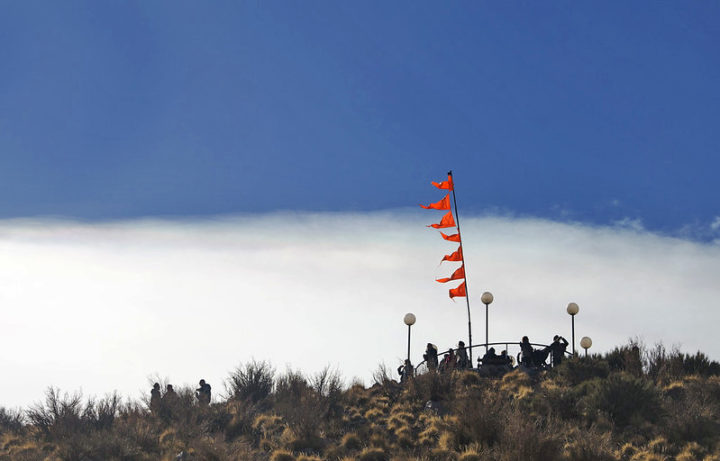The meeting of global citizens’ networks, held on July 5, 2020, was of special interest to three friends of the Dialogues for Humanity, the Agora of the Earth’s Inhabitants and the Humanist Movement, who have been promoting the union of forces in common actions.
In dialogue with Pressenza, they expressed their opinions about the meeting. These are their responses that “we want to share with our colleagues and with other networks, to continue to reflect together, to continue to move forward”.
–How did you feel about this effort of collaboration among global networks that materialized at the meeting on 7/5/2020?
Débora Nunes: –I am happy that this effort can contribute to a process of collaboration of planetary citizenship that is urgent and depends on many initiatives like this. The Dialogues for Humanity network, which hosted this first meeting, has as its founding activity what we call dialogues under the trees, which comes from an African tradition of sharing ideas and feelings. For feelings, there is little space on the political agenda as we know it today, which generally prioritizes the exchange of ideas and joint actions. I understand that paying attention to this aspect is a way of establishing spaces for building trust, and this is essential for such collaboration to prosper.
Alicia Blanco: –I felt that we were opening a great possibility! I was very curious because I had read some materials from each network, but I did not really know them or the people. I could not participate because I don’t speak French and there were many of us, so I only watched as a spectator. So, while listening to the translation that a friend was doing for me, I tried to understand the mood of those who were presenting their proposals, and the general mood of those who were listening. It was remarkably interesting, both because of the attention that could be felt, and because of the diversity of ways and sensibilities that I seemed to recognize. Some, more expeditious, with “concrete” proposals that demanded immediate action, others more reflective … I think that in all cases there is a lot of applied energy, and I seemed to recognize many points in common. We will see how we will continue, but now, as in the children’s game, I had the impression that we had “opened the door to go and play”.
Marcos Arruda: –I agree with Débora and Alícia and I feel that it is a necessary, timely and urgent undertaking. Why is it a priority? One of the most serious diseases in the human world is the fragmentation of human beings amongst themselves and, as a species, with Nature as a whole.
The cosmological premise that can unite our networks is that everything and everyone is interconnected. In the mental sphere, Western culture deceives us with the premise of absolute individualism. In the spiritual sphere – that of reflexive consciousness (or the sphere of the Greek Nous) – we know in our hearts that we are all ONE and, at the same time, we are diversity (biodiversity and noodiversity). We are individuals and, at the same time, we are natural, social, and spiritual beings. This premise I call the foundation of solidarity.
But awareness that we are solidly interconnected is not enough to motivate us to act in solidarity. Enter the quantum leap of consciousness – the act of freedom with which we choose to relate in a solidary way amongst ourselves and with all beings in the Cosmos. In other words, we not only are, but we also choose to be and act as part of the great human family that inhabits the Earth, and the immense family of living beings that populate the continents, the oceans and certainly other planets throughout the Universe/Universes. The notion of the human family does not fail to recognize the contradictions and even the antagonisms that divide us. But it unveils a utopia that transcends all these divisions, including the conflict between social classes and between nations: a humanity united by awareness of our interconnection, interdependence, and intercommunication. On the political level, planetary citizenship. I feel that the collaboration among Global Civil Society Networks creates the opportunity to awaken the consciousness of humanity to our true multidimensional nature and to the urgency of a radical transformation of the role of the State and of global governance agencies, based on the premise of the unity of diversities.
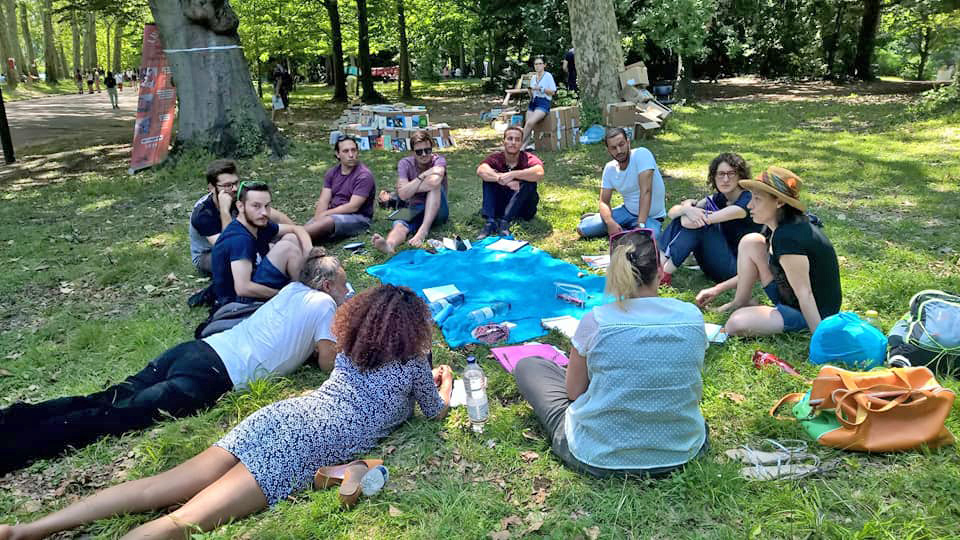
Atelie of the sensitive. Dialogues in Humanity
– What possibilities do you see for the future of this process of collaboration and multiconvergences among networks?
Débora: –I see, in the first place, a possibility of interpersonal mutual knowledge when we see and listen to each other in virtual meetings and of knowledge between movements through our speeches and the documents we share. Experience shows, as of now, how many common options we already have along our paths, placing us on track for multiconvergence. Secondly, I see the possibility of helping each other on our different fronts of action in a truly cooperative way, knowing in advance that each network needs the others to expand the scope of its actions, or simply to feel, in the most difficult moments, that we are not alone. In that respect, it is also worth sharing internal convergence methodologies of networks, so that we can advance multiconvergence among networks. This third aspect that I would like to highlight addresses the issue of building trust, as networks only exist if there is a predisposition to be together. In the Dialogues network we call this the “politics of friendship” or offering space to emerge among us the sort of affection that works through fulfillment, requiring us at the same time to be better people every day. This universal experience of friendship can inspire a new politics that focuses on what unites us and not on what separates us and that therefore strengthens the movements of both local citizenship and planetary citizenship.
Alicia: –I believe that initially we will be able to converge on actions promoted by each network, supporting each other’s initiatives. Now, I find it difficult for all of us to put the same energy into a single common action, but I hope we can do that later. I fully agree with Debora on the importance of getting to know each other better, starting with interpersonal, or small meetings among a few people. Precisely because we aspire to global changes, I believe that we have to strengthen interpersonal relationships, listening to each other, recognizing each other, seeing what resonates in us based on what the other says, learning how to understand or overcome differences, how to discard them if possible. To get to know other networks, I want to know the people who are part of them, and I want them to know us and to know our Humanism. The follow-up will depend on each one of us.
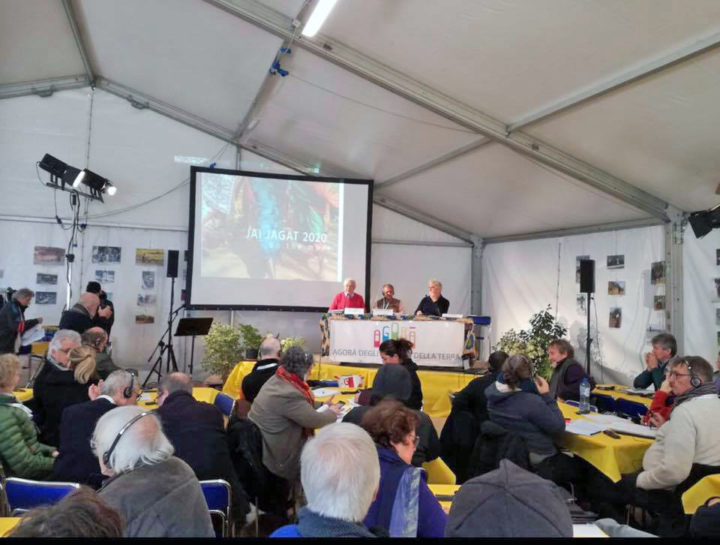
Activity of the Agora of the People of the Earth
Marcos: –Presently, the world lives under the hegemony of the myths of egocentrism and anthropocentrism. We, who experience the ecocentric and biocentric paradigm, face the challenge of showing by our example, more than through courses and speeches, that our paradigm is more real, just and a generator of good living for all than is the dominant one. It is an effort that Alícia and Débora and I seek to witness. But the dominant culture has lethal, financial and cultural weapons that alienate and reproduce the relationships of domination, subservience and oppression — weapons that alienate, repress and kill. Our inner strength also needs to become an outer strength, through dialogue and agreement around humanizing personal and social transformations and through modes of governance that share power and educate through the democratic and solidary exercise of self-management. The horizontal and multiconvergence articulation of networks and movements aiming at reinforcing the struggle agendas of each one and jointly defining strategies and tactics of action will empower civil society and broaden the effectiveness of its actions towards those transformations.
–What difficulties do you encounter in such a process?
Débora: –I perceive three main difficulties: one, of time, since every citizen’s engagement already places demands on our personal ability to deliver, even more so when we participate in a network that works in different countries, with different languages and cultures. Internal convergence efforts are already very time-consuming within the same organizational culture; just imagine many organizational cultures. Another difficulty is the conflict between the urgency of action, since the world is foundering, and the patience needed for things to happen at a level of satisfaction for each of us that keeps us in the process of articulation and does not exhaust our energy. Managing the contradiction of taking immediate action and building long-term work requires creativity. The third difficulty is precisely the masculine mode of political engagement, still predominant, which does not pay enough attention to relationships and focuses excessively on the tasks. I perceive a different sensitivity among women, who are concerned with providing moments of relaxation, of fraternization, of interpersonal listening not only for the pleasure that this naturally provides, but also for the strengthening of the joint action that derives from these moments.
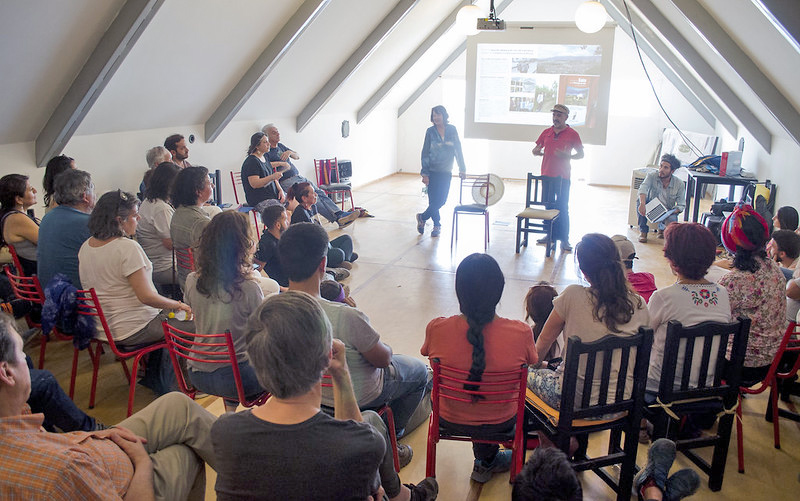
Seminar at the Park of Study and Reflection in Punta de Vacas. Humanist Movement
Alicia: –In a quick analysis, I think that, on the one hand, there are the changes imposed by the pandemic, which have exposed the main contradictions of the system. I think that this forces us to review priorities, urgencies, and ways of working. We need to be more flexible than ever and more supportive, and that is not easy because it involves rethinking things in our own lives.
On the other hand, a great difficulty can be to reach a dialogue with a prior idea about the other, believing that we know who that is, what he or she wants, etc. But for that, direct communication is a fantastic antidote. We can all have questions or doubts about others, but communication must be open and sincere if we want to go far.
Another thing to resolve is whether we are sincerely open to understanding and converging to move forward with the other, or if what I want is to convince the other of my own proposal. We also must overcome some organizational challenges, but that seems to me to be much easier to resolve. Today the technical possibilities are almost endless.
Marcos: –I think Débora and Alicia touched on essential points. If I were to summarize what I think, I would highlight objective and subjective difficulties. The objectives would be: the overload of work schedules and struggles; the difficulty of articulating, in theory and in practice, the micro, meso and macro dimensions; the Left’s Statolatry and its statocratic practices when they occupy state power; the distance between them and the most oppressed sectors of society. Subjective difficulties would be the egolatry of many progressive leaders; the theoretical and historical shallowness of most current leaders; the lack of critical knowledge regarding so-called socialist practices, and of key concepts such as socialism, democracy, freedom, politics, friendship, and others; the pseudoscientific posture that ignores the inseparable character of transformative action in the social, personal and interpersonal spheres. These are just some of the difficulties and threats to the project of multiconvergence of global networks and movements; the hope we have is to encounter those who are willing in practice.
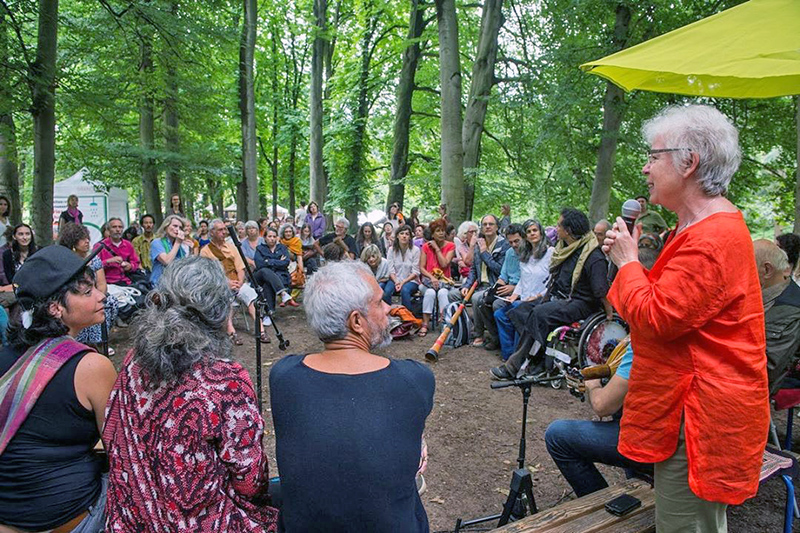
Dialogues in Humanity activity
–Knowing that global networks are multifaceted and not focused on just one theme, which theme do you understand that the network you participate in would prioritize as a joint action by global networks?
Débora: –The Dialogues in Humanity network exists in many countries and many initiatives emerge from within it. As for other networks, it is difficult to focus on one topic and that is why trust is so important, because we are free to prioritize knowing that the network will support us, without competition or long debates that exhaust everyone. I believe, and in conversations with other members of the network, I see that it makes sense, that the issue of food sovereignty is a high priority. We have a group from several continents working on this theme, combining theoretical reflection and practice.
I think that focusing on this theme in a global articulation in which other networks raise banners as important as this will be a way to unite us internally and to enrich with our priority a multifaceted action that deals with a better life for humanity.
Alicia: –Our Movement is present in many countries working on different fronts and with differing degrees. Even so, there are two activities that I would highlight, which I believe could easily converge with other networks: one is the work that some friends are doing with ICAN, for the abolition of nuclear weapons. The other is the campaign for an Unconditional Universal Basic Income, which many of us consider an indispensable and urgent measure in the face of the consequences of the pandemic. This last campaign includes the presentation of a letter to the UN Secretary General, requesting that he convene a People’s Meeting that will begin to organize the world in which we will continue to live.
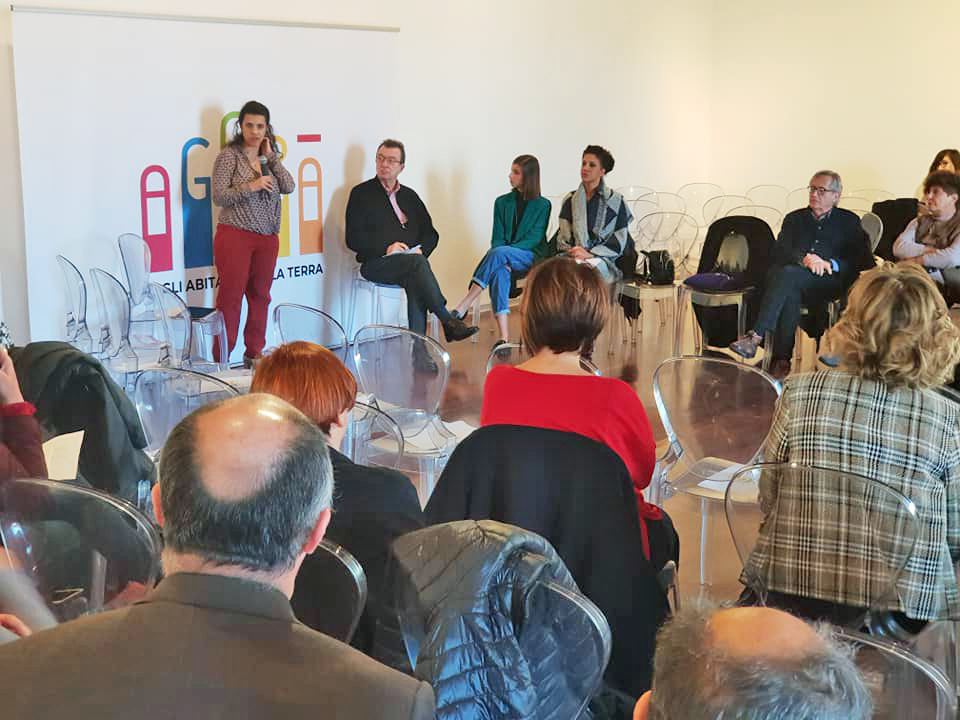
Seminar of the Agora of the People of the Earth
Marcos: –A priority for the Agora of the Earth’s Inhabitants [AEI] at this moment is to search for the truth behind the appearances of the pandemic. We are witnessing competition for vaccines and China’s policy of making vaccines and medicines against COVID-19 a public common good, free of charge and accessible to citizens across the planet. The campaign proposed by the AEI to the UN and to the governments of the world is to ban patents that place under private control vaccines, medicines and equipment to combat COVID-19. On the most strategic horizon, the campaign aims for the creation by the UN of the Health Security Council with active participation of a planetary citizenship, to be launched soon by AEI together, hopefully, with other networks and global citizens’ movements. I take advantage of this chat to also share priorities of other networks that are collaborating at this moment:
- The campaign aimed at the creation by the UN of the Humanity Security Council and a Council of Elders, proposed by the Dialogues for Humanity Network.
- The campaign for an Unconditional Universal Basic Income, as proposed by the Humanist Movement and the Brazilian economist Eduardo Suplicy.
- The campaign for the recognition of the Earth as a subject of rights, underway in the UN’s Harmony with Nature Program, with the participation from Brazil of FMCJS – the Forum on Climate Change and Socio-Environmental Justice.
- The worldwide campaign Nobody Goes Hungry led by the 10×10 Global Gymkhana and the campaign for the legal criminalization of poverty, to be introduced in local, national and global legislation, proposed by the AEI.
To access other articles published on this same subject, click here.
Translation from Portuguese by Prof. Michael McCollough


